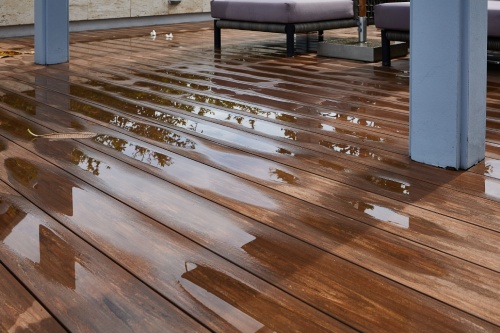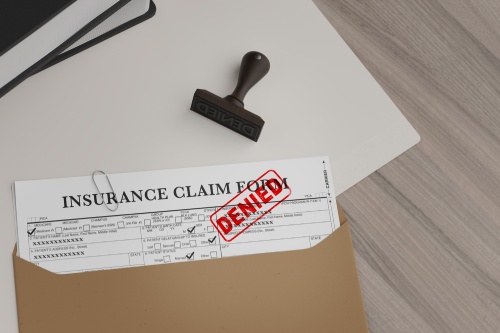5 Reasons For Denied Water Damage Claims-and How to Fight Back
Water can be destructive – and expensive. A simple leak in your pipes, for example, can leave behind ruined drywall, rotted studs, and thousands of dollars in repairs. When floods occur, such as flooding in Austin or flooding in Houston, the water damage can be even greater.
Talk about stress. But what we find is that the only thing more stressful than water damage is an insurance company that denies your valid claim. Many insurance companies have built a reputation for deploying every tactic possible to deny or underpay claims, leaving you frustrated and financially exposed.
At Palker Law Firm, we’re here to turn the tables in your favor. Let’s break down the top reasons your claim might get denied—and, more importantly, how you can fight back.
5 Common Reasons for a Denied Water Damage Claim

Insurance companies use many excuses to deny water damage claims. You must be aware of what tactics they may use, and how to protect yourself against a denial before it happens. Here are 5 of the most common reasons for a denied water damage claim.
Poor Maintenance = Denied
Claim Insurance companies love to pin the blame on you, claiming “lack of maintenance.” They’ll argue that you are responsible for the damage because your property wasn’t in pristine condition. For example, they may refuse to cover a roof leak if they can claim that you did not properly maintain the roof.
How to Fight Back: Prove them wrong. Keep meticulous records of regular maintenance—annual inspections for your roof, plumbing, and HVAC systems are your best allies. By documenting your diligence, you dismantle their excuses before they even surface.
Policy Exclusions: Hidden Pitfalls
Hidden within Texas insurance policies are exclusions ready to catch you off guard, especially concerning water damage. Standard homeowner’s policies often exclude flood damage, slow leaks, and sewer backups. If the insurance company can tie your claim to one of these loopholes, they will likely turn down your claim.
How to Fight Back: Scrutinize your policy for exclusions or limitations on water damage. Living in flood-prone Texas? Supplement your coverage with flood insurance. Need clarity on leaks or backups? Talk through your policy with your insurer before disaster strikes. The more you understand your policy, the better you can fight for the compensation you deserve.
Late Filing of the Claim
Insurance companies operate on strict deadlines for claims. Delay, and you could face denial, and a hefty repair bill.
How to Fight Back: Speed is your ally. Document damage immediately with photos and videos, then contact your insurance company without delay. In Texas, you generally have up to 60 days to file a written proof of loss, but sooner is always better. The Texas Department of Insurance provides more information on filing deadlines.
Inadequate Documentation
In water damage claims, documentation is your shield. Insufficient evidence allows insurers to downplay the severity or question its relevance to your coverage.
How to Fight Back: Capture every angle, every detail with photos and videos. Keep all receipts for repairs and temporary measures. By meticulously documenting the damage, you eliminate any room for doubt. For tips on documenting damage, see Consumer Reports’ guide.
Failure to Mitigate Damage
Most policies require you to act immediately to stop further water damage from occurring. If you do not, you could face repairing the damage on your own, since the insurance company will not want to pay for damage that you could have prevented by acting sooner to protect your property.
How to Fight Back: Do what you can to stop further damage from occurring. For example, tarp your roof. Turn off your water. Move vulnerable items out of the water’s way. And make sure you document the steps you take to keep your home and belongings safe from further water damage.
Step-by-Step Guide to Disputing a Water Damage Insurance Denial

An insurance denial isn’t final. You can dispute the denied water damage claim, as long as you know what to do. Here are the steps you recommend:
Review the Denial Letter
Carefully read your denial letter to understand why the insurance company refuses to pay your claim. Compare any reasons to your policy to see if there is a discrepancy that could allow your claim to be paid.
Gather All Documentation
Collect photos, videos, maintenance records, contractor verifications, and other documents that support your claim.
Get a Second Opinion
Do not take the insurance adjuster’s word as final. You can hire an independent adjuster to evaluate the damage to your home and belongings. A second opinion that differs from the insurance company can bolster your claim.
Write an Appeal Letter
With this evidence in hand, submit a written insurance claim appeal to your insurer, detailing your case and including all gathered documentation. Send it via certified mail so you can track it.
File a Complaint with the Texas Department of Insurance
If they remain obstinate, file a complaint with the Texas Department of Insurance. They oversee fair practices and can investigate claims of bad faith.
Consider Legal Action
A Texas-based attorney seasoned in battling insurance companies can help you fight for your claim with tools and expertise you do not have yourself.
How a Lawyer Can Help You Fight Back Against a Denied Water Damage Claim

Insurance companies have teams dedicated to denying claims. But with a Palker attorney on your side, you level the battlefield.
Expertise in Texas Insurance Law
Our lawyers understand Texas policies and the loopholes insurers exploit. They’ll identify where you have a reason to fight the insurance claim denial, and win.
Negotiating with Insurers
Palker attorneys aren’t intimidated. They counter lowball settlements and unfair denials, speaking the language insurers understand.
Gathering and Presenting Evidence
We help compile an airtight case, organizing all necessary documentation to challenge denials effectively.
Filing a Bad Faith Claim
If the insurer’s tactics violate good faith, we’ll pursue a bad faith claim to hold them accountable under Texas law.
Pursuing Legal Action if Necessary
When negotiation isn’t enough, we’ll take your fight to the courtroom, getting your case the attention it deserves and fighting for every dollar of compensation to which you are entitled.
Insurers prioritize profits over your recovery. But with the right strategy and Palker Law Firm at your side, you can reclaim your rights. If you’ve been unfairly denied, don’t let them win—contact us today and let a Texas-based attorney fight for the compensation you deserve.






